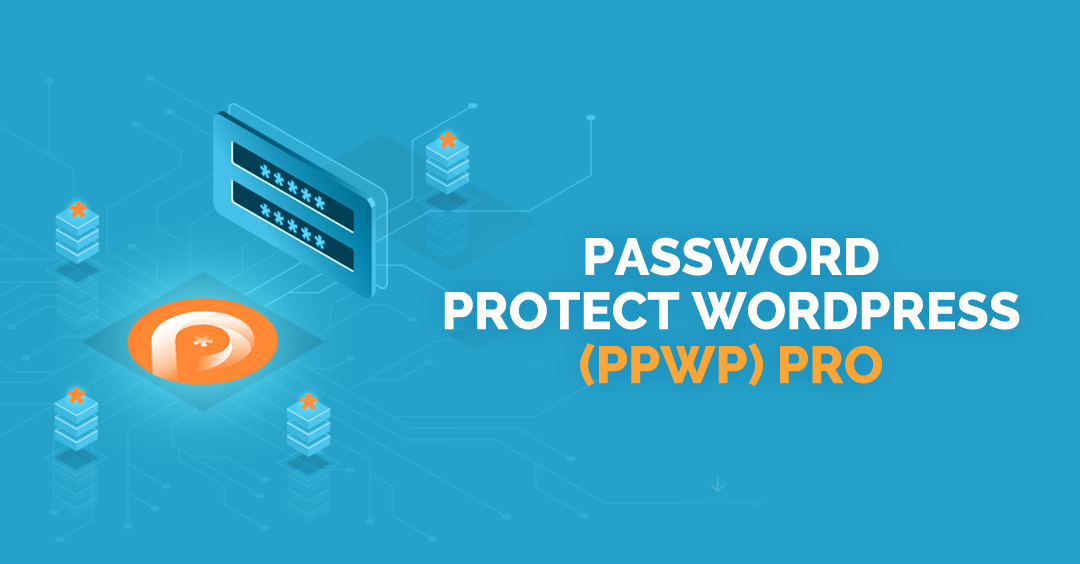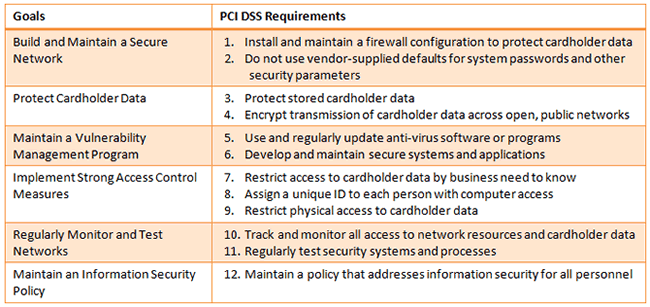Cybercrimes are on the rise and devastatingly affecting eCommerce businesses.
Omnichannel retailers have witnessed a surge in eCommerce fraud, which was up to 50% in 2020, compared to 2019.
Aside from that, eCommerce security breaches show no sign of stopping. Data loss still opens up a real can of worms to many eCommerce businesses.
As an online store owner, you should keep close tabs on the latest eCommerce security practices, along with well-equipping yourself with eCommerce security issues.
Lucky you, our post today will cover them all.
- 3 Key Factors in eCommerce Security
- Common eCommerce Security Issues
- 9 Best Practices to Boost eCommerce Security
3 Key Factors in eCommerce Security

In a nutshell, eCommerce security refers to the actions that online store owners take to protect their businesses and customers from cyber threats. It includes ensuring a safe online transaction and preventing data breaches.
The more effort you invest in securing your eCommerce store, the more trust you gain from customers. There are 3 key factors in eCommerce security that you should take into account.
#1. Privacy
Privacy comes of paramount importance in selling and buying online. It boils down to one principle, which is preventing any activity related to revealing customer data to unauthorized third parties. In other words, others can access the personal info of clients, including bank or credit card details other than the online seller that they have traded with.
Do you know that while you try your butt off to protect customer privacy, violating it is what hackers hunger for? Data breaches have now become par to the course. But still, they leave tremendous damages to online businesses and consumers themself.
#2. Authentication
Authentication means that both parties, the sellers and buyers are real.
The goods sellers or service providers should be genuine and honest about what they offer, like product quality, deals, and even money-back guarantees.
On the other hand, the clients should prove their identity, making the sellers feel secure about the online transactions and minimizing the likelihood of eCommerce fraud.
#3. Integrity
Integrity plays a key role in eCommerce security as it makes sure that the information that buyers gave to shop online will remain the same. Simply put, it won’t be changed or tampered with by online businesses.
Any actions altering customer info, even the smallest part, can lead to the erosion of trust between shoppers and online enterprises.
Common eCommerce Security Issues
- Phishing: Frauds use emails, texts, or phones to trick victims, asking them to provide private information like passwords, account numbers, social security numbers, and more.
- Malware and ransomware: Once hackers inject malware and ransomware (a type of malware) into your site, they will gain control all over the admin dashboard. Consequently, you can be locked out of all your important data and systems.
- DDoS Attacks
- Brute Force Attacks
- SQL injection: This comes from web applications where attackers embed malicious SQL statements. From there, they can get access to the database, steal or destroy your sensitive data.
- Cross-site scripting (XSS)
- E-skimming: E-skimming happens when hackers steal credit card details and personal data from payment card processing pages on eCommerce sites.
9 Best Practices to Boost eCommerce Security
#1. Implement Strong, Unique Passwords
Verizon Data Breach Investigation Report emphasizes that 37% of data breaches happen due to weak credentials. As such, having strong passwords comes as the first and indispensable step to head off cyberattacks on eCommerce stores.
Strengthening your passwords is not rocket science at all. It’s nothing related to your technical skills but your habits. Most people re-use the default admin username granted for years and even use their birthdays, ID cards, or driving licenses as the passwords.
That’s an appealing loophole for hackers to compromise. Keep in mind that:
- A password should have at least 8 characters mixed with upper, lower cases, numbers, and special symbols.
- A password is unique of your own, meaning you can’t share it with others, plus don’t use it across eCommerce sites and social platforms.
- You can consider using a password manager, like LastPass, or a password protection plugin like PPWP Pro to auto-generate and manage passwords.

#2. Use Multi-layer Security
Besides strong passwords, you can also tighten eCommerce security by adding multi-layer protection to your store. 2SV, 2FA, and MFA are some great options that you can take into serious consideration.
- 2SV, aka 2 step-verification: users are required to enter a one-time code, delivered via an email, text message, or phone call.
- 2FA or 2-factor authentication asks you to verify your login attempt via another device.
- MFA or known as multi-factor authentication is quite similar to 2FA but requires more than 2 factors for authentication.
#3. Switch to HTTPS
Once you switch HTTPS, a green lock sign standing for “secure” will appear near your URL bar whenever customers visit your site. Not only do HTTPS protocols secure the sensitive information users submit, but also their data.
On top of that, upgrading to HTTPS proves a boon to SEO. Your site wins a chance of getting a higher ranking on search engines since they consider HTTPS as a ranking factor.
To make that switch, first, you need to purchase an SSL certification from your hosting company.
#4. Back up Your Data
Regularly backing up your site helps lower the risk of data loss from brute force attacks and sudden data breaches. If you forget to back up your data regularly, you are at the risk of losing it for good.
Even in case your site suffers an attack, backup files give a helping hand in recovering customer data and get your business quickly running again.
If you’re building an online store using WordPress, there are some trustworthy WordPress backup plugins, such as UpdraftPlus or Jetpack.
#5. Install Antivirus Software
Antivirus software now becomes the most hassle-free yet effective solution to prevent hackers from harming online businesses.
An antivirus or anti-fraud software uses sophisticated algorithms to flag any malicious transactions. You’ll keep in the know if there are any serious eCommerce issues happening, then process further actions.
One great point is the software comes with a fraud risk score, letting proprietors determine if a certain transaction is legitimate.
#6. Check Plugins Regularly
Regularly check all of your plugins to see if there are any plugins outdated or not compatible with the 2 latest versions of WordPress. In case you no longer use those plugins, just remove them from your site.
If you don’t, attackers can take advantage of those redundant plugins, find out their vulnerabilities then spread malware and gain access to control your eCommerce site admin. This poses the risk of your eCommerce security breaches.
#7. Use Solid-rock Firewalls
Adding firewalls to your eCommerce site is another sure-fire idea to bolster your eCommerce security.
Firewalls allow only trusted traffic from real users to go through and access your site. It also comes in handy in holding Spam, XSS, CSRF, malware, SQLi, and many other attacks at bay.
Some robust firewall tools that you can look at are Astra firewall, WordFence, etc.
#8. Comply with PCI-DSS Requirements
Payment Card Industry Data Security Standard, or PCI-DSS in short, is in charge of protecting all credit card data. All businesses that give the go-ahead to credit card transactions should strictly follow its requirements.

Image Source: Medium
#9. Make Use Of SSL Certificates
Secure sockets layer (SSL) certificates help authenticate links on online networks. SSL certificates are connected with credit card details and transactions to regular queries.
Thanks to SSL, all the information you provide for online transactions is secure. This is because SSL certificates encrypt and safeguard your data from interception between different destinations.
One more thing, when you have an SSL certificate for your eCommerce site, you can switch from HTTP to HTTPS. This serves as a trust signal to your visitors that your site is secure.
Do you know that thousands of Shopify store owners have double-checked their SSL certificates to enhance their Shopify security?
Tighten Your eCommerce Security Now!
We’ve shown you everything you need to know about eCommerce security. To sum up, privacy, integrity, and authentication do play key roles in an eCommerce store.
Apart from that, we’ve also brought to the table some common security issues that eCommerce stores are encountering these days. They include phishing, malware, DDoS and brute force attacks, SQL injection, XSS, and e-skimming.
To help your store guard off these attacks, we’ve put forward 9 proven security practices. Remember to set strong and unique passwords, plus, educate your customers about this too. You can also add multi-layer security, firewall, upgrade your site to HTTPS, and utilize SSL Certificates.
Don’t forget to back up your data, check outdated plugins regularly, and make it a routine to maintain PCI-DSS.
What are you waiting for? Tighten your eCommerce store security now!
